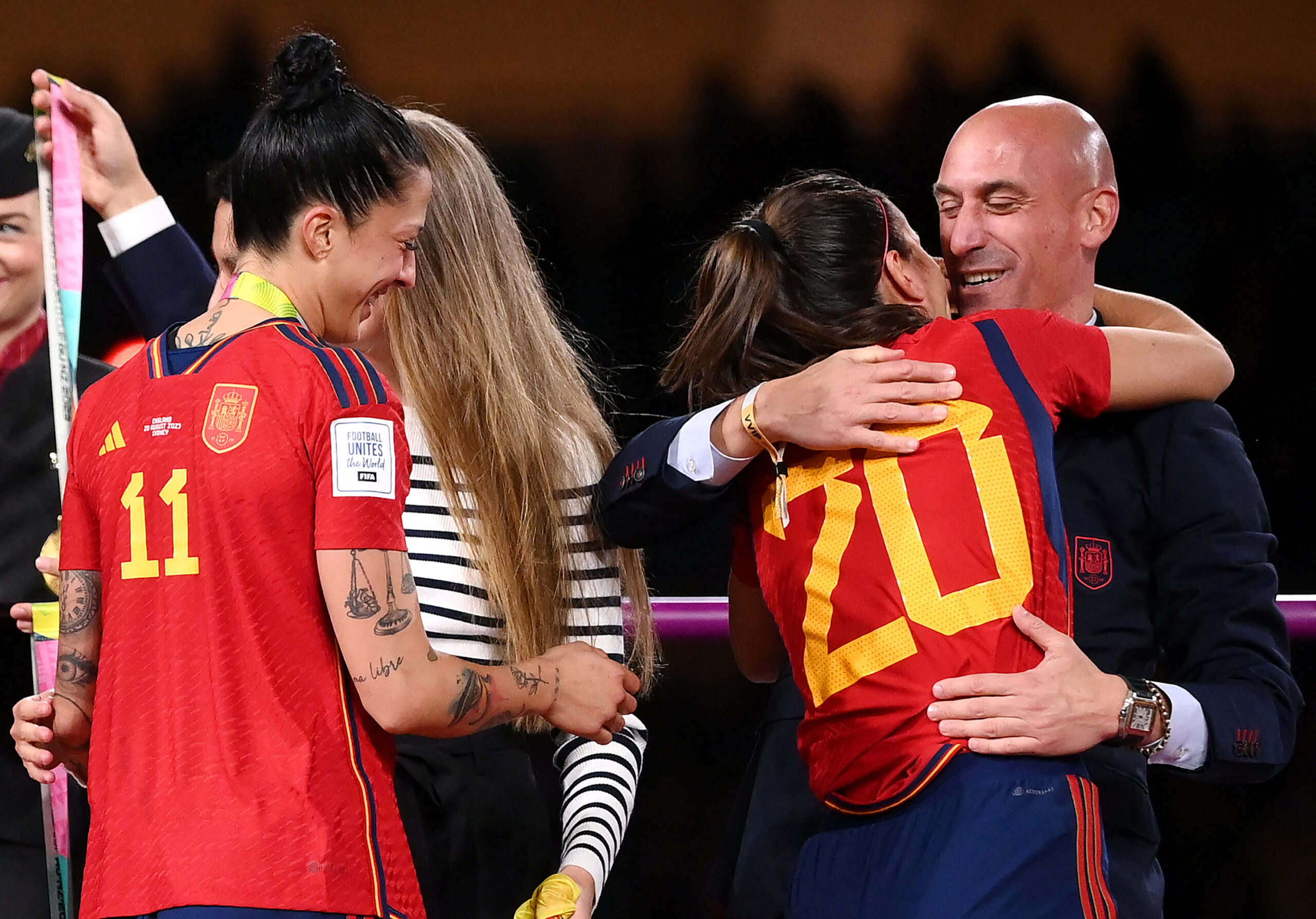
Spain’s defender #20 Rocio Galvez is congratulated by President of the Royal Spanish Football Federation Luis Rubiales (right) next to Spain’s Jennifer Hermoso after winning the Australia and New Zealand 2023 Women’s World Cup final football match between Spain and England at Stadium Australia in Sydney on August 20, 2023. The former Spanish football chief Rubiales is to face trial in February 2025 over the kiss he forced on World Cup star Jenni Hermoso according to court, Agence France-Presse reports on June 17, 2024. —photo by Franck Fife/Agence France-Presse
MADRID, Spain — Spain’s Supreme Court on Tuesday ruled that a kiss without “tacit consent” can be considered sexual assault just months before former football federation chief Luis Rubiales will stand trial over his unsolicited kiss at the Women’s World Cup.
The Supreme Court upheld a lower court ruling from the southern region of Andalusia which convicted a police officer of sexual assault and sentenced him to one year and nine months in jail for kissing a woman on the cheek who was in police custody.
READ: Spain’s football chief apologizes for World Cup kiss on Jenni Hermoso
“A ‘stolen kiss,’ and thus without express or implied consent, constitutes sexual assault in actuality,” the court said, adding that “it is clear that the fleeting contact of a nonconsensual kiss represents a bodily invasion.”
Hot topic
“A ‘no’ from the victim is not necessary in the face of attempts to kiss a woman, but rather that for there not to be a crime, what is needed is consent. The key is consent, to the point that if consent has not been given, there has been sexual aggression.”
READ: How a kiss is unveiling sexism in sports
The issue of whether an unsolicited kiss can be considered sexual assault is a hot topic in Spain since Rubiales provoked worldwide outrage by kissing star player Jenni Hermoso on the lips during the medal ceremony after Spain beat England to win the World Cup in Australia last year.
At the time, Rubiales, 46, brushed it off as “a consensual” peck on the lips, but Hermoso, 34, said it was not.
Requested sentence
She filed a lawsuit against Rubiales in September, telling the judge she had come under pressure to defend him both on the flight back from Australia and on a subsequent team holiday to Ibiza in the Balearic Islands.
Rubiales is set to stand trial from Feb. 3 to Feb. 19 over the kiss.
Public prosecutors have requested a sentence of two-and-a-half years in prison for Rubiales—one year for sexual assault and 18 months for coercion.
The former federation chief, who quit his post last year in the wake of the controversy, told private Spanish television station La Sexta in April that he could not understand how it could be labeled as sexual assault, saying there was “no sexual context” to it.